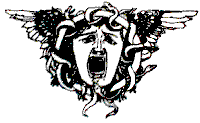
To Secondary Students (1970)
|
|
When you were five years old (or was it four) you were sent off to school, and with about thirty or forty other children of your own age herded into a classroom, in which you were to spend the next year. This was repeated next year, and for another four years.
At the end of six years you have completed your primary schooling, that is, you have been instructed, brainwashed, disciplined and punished and taught subjects which you may or may not have liked but were unable to do anything about.
Then the process is repeated for another six years (if you can last that long), but in secondary school it is at a much more formal level. You spend X forty minutes studying mathematics, Y forty minutes studying english, Z forty minutes studying history and so on whether you like it or not. Usually there is little choice of subjects below fifth year. It does not matter anyway because you have no say in what you learn (and probably your teachers are restricted by centralized planning of courses), so you either conform or face the consequences, e.g. fail exams, have a nervous breakdown.
In fact your schooling is basically to teach you to become good, loyal citizens; to conform but never to question the structure of society as it is. The methods range from making you wear school uniforms, compelling you to study certain subjects to rigid enforcement of disciplinary rules. So if you want to be different you had better watch out.
So in saying this the LIBERTARIAN EDUCATION COMMITTEE believes that any oonnection between education and schooling is coincidental. Educating should be based on the free enquiry and spontaneous activity of all students with the co-operation of all teachers.
Some suggestions:
- Meetings of students and students directly concerned in making decisions involving curricula, timetables, etc. a school council consisting of students and teachers may be helpful in running the general affairs of the school, and resolving problems.
- Increasing the scope of studies available e.g. languages and culture, mythology, and such subjects along with art, drama, music, to be placed on an equal footing with mathematics, english, etc.
- Free choice of subjects to be made by each student so he/she will not have to study subjects that he/she feels may be irrelevant, unnecessary, or uninteresting; thus the abolition of compulsion to study any particular subject. From this it follows that each student will study subjects that he/she finds interesting and useful.
- Abolition of compulsory attendance. Each student will attend when he/she wants to. Thus schools will open for longer periods during the day and at night when parents and others may attend, to further their own culture and share experiences. schools could become social, educational and cultural centres.
- Removal of authority, punishment and "school rules."
- Abolition of school uniforms. They tend to destroy individuality. The argument that it covers up social and economic differences is a sham. If these differences exist, why hide them?
- Dissolution of the prefect system and all such systems because they create an elite; a class system amongst the students with its accompanying bullying and vindictiveness.
- Abolition of examinations and other such "test methods" which lead to cramming, mental stress and competition between students.
Contact Takver with questions or comments about this web site.
This Page is linked from: http://www.takver.com
© Takver. All Rights reserved except for nonprofit, union or educational use, please credit source.
Last modified: August 1, 2002